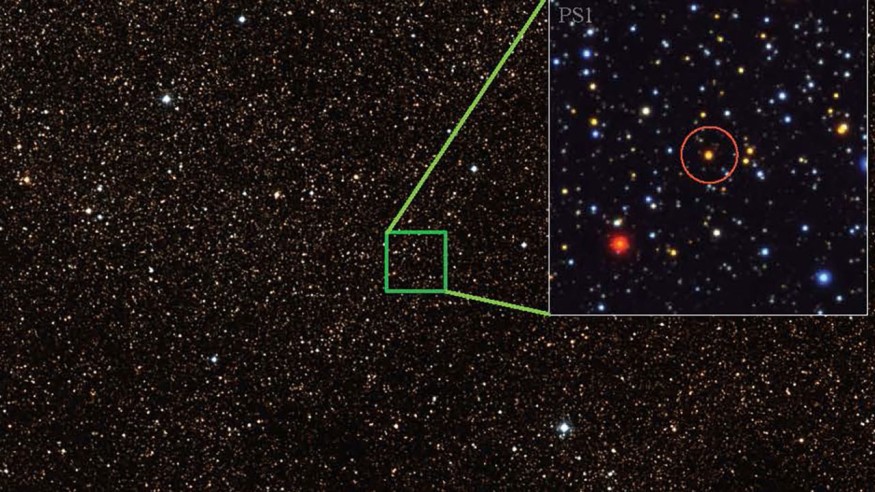The massive star Gaia17bpp began to brighten again after a 7-year eclipse by a peculiar companion, revealing it existed in an exceptionally rare binary system. Nobody noticed when it blinked for years, but the European Space Agency's Gaia probe observed the star, known as Gaia17bpp, abruptly increase in brightness, and years later, astronomers believe they have discovered why.
The dominant theory is that the red giant star, which is 55 times the size of the Sun, has a small companion surrounded by a huge disk of dusty debris that passes in front of the larger star every 100 or 1,000 years.

Checking the Archives To Confirm the Star's Companion
The Gaia spacecraft was launched in 2013 and was designed to look at billions of stars, map their locations, and gather incredibly comprehensive information about their properties, including brightness.
Astronomer Anastasios "Andy" Tzanidakis from the University of Washington said during a news conference at the American Astronomical Society's 241st meeting, held this week in Seattle, that they happen to stumble upon the odd star while studying Gaia's data collection.
Tzanidakis stated that archive data indicated that about 2017, the massive star Gaia17bpp, which had been hardly observable, began to brighten over the period of around two and a half years. It was an amazing experience as stars usually do not do that.
He and his colleagues looked into other archives to determine how Gaia17bpp has behaved previously, LiveScience reported. They discovered Gaia17bpp recordings dating back to the 1950s, wherein the red behemoth maintained its constant brilliance for the most part. But in 2012, the star abruptly began to fade until it completely resurfaced in 2019.
Tzanidakis noted that the absence of this blinking behavior in archives dating back more than 70 years shows that such occurrences occur on timelines of 100 or even 1,000 years. He said that these eclipses may only happen once in a lifetime and that it is possible that they will never be seen again.
While the astronomers are still unsure what is causing the dimming, they believe a small, slow-moving companion star may be surrounding Gaia17bpp. Researchers said that this companion may be encircled by an extended disk of dust greater than the typical distance between Earth and the sun.
Not the Only Star With Long Eclipse
Gaia17bpp may be in a rare binary system with such a protracted eclipse, but researchers noted that it is not the only star to exhibit such a long eclipse. As per CNN, astronomers are particularly interested in the star Epsilon Aurigae, which is eclipsed by a massive companion twice every 27 years - but the identification of the partner is unknown.
Additionally, scientists were also drawn to the huge star Betelgeuse when it began to fade drastically in late 2019, sparking suspicion that it was about to erupt into a supernova. Instead, the celebrity threw a dusty rage.
The dust-producing stellar partner for Gaia17bpp might be a tiny dead star known as a white dwarf, but scientists are not sure what else could be adding to the disk of material around it. Whatever it is, Gaia17bpp and its unknown cosmic companion are so far apart that another eclipse is decades away.
The discovery was a serendipitous event and if they had been a few years off, astronomers would have missed it. More so, it shows these types of the binary system is more common than expected. Theories about their creation would help us understand how pairings like this happen.
RELATED ARTICLE: First 3D Model of Exoplanet Orbiting Its Star Offers Clues on How Planets in Binary Systems Form
Check out more news and information on Space in Science Times.












